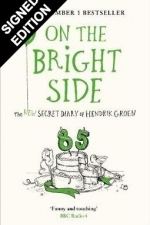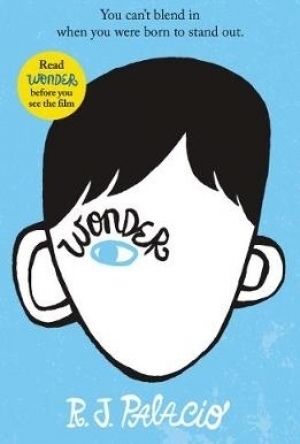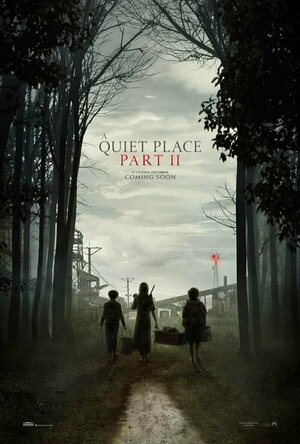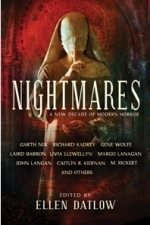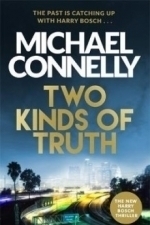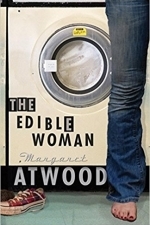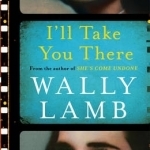Search
Search results
BookInspector (124 KP) rated On the Bright Side in Books
Sep 24, 2020
More reviews can be found on https://bbookinspector.wordpress.com
This is the second diary of Mr H. Groen, where he shares with the reader a year of his life in one of Amsterdam’s elderly care homes, and I really found it fascinating. I didn’t have the chance to read his first diary, however, I found that this book can be easily understood by a first-time reader like myself because Hendrik does a great job by introducing and describing all the residents of his care home.
The main character in this book is, of course, Hendrik Groen, and the whole book was told from his perspective. I found him absolutely adorable. He is incredibly bright minded, funny, and interesting personality. I really enjoyed the way he introduced all his friends and nemesis, his and Everet’s (best friend) sarcastic thoughts and actions got me laughing out loud many times. I liked the way Hendrik showed through his diary, that elderly care homes can be an actually fun place to be, where you are occupied and never alone. And when I will grow old I would not mind spending my old days in such establishment.
Even though this book was from author’s perspective, Hendrik shared many events which he saw on TV or read it in papers throughout the year of 2015, and I loved the way he incorporated different resident’s thoughts about those events. My most favourite thing in this book was the Old-But-Not-Dead club and their members. Even though they hardly can walk, they still choose to explore life and it’s offerings, and it is just admirable. I think this book is very relatable to all the elderly because Groen is sharing not only good stuff and jokes, he is sharing the cruel reality as well. And I did like that a lot, it makes it more realistic and believable.
The writing style is easy to read and very witty, sarcastic and enjoyable. I had to twist my tongue a little bit while pronouncing the Dutch surnames, but that didn’t bother me much. The chapters are short and sweet and the book went quite quick for me. It has a lot of going on in every chapter, but sometimes my mind tended to wonder of, as it was a little bit monotonous sometimes. Hendrik ended this book with a very positive message and big hopes for his fiction novel, which I will be waiting impatiently for. So, to conclude, if your grandparents are still alive, you have to get them this book. I bet they would be able to relate and if not they would have a great laugh while reading it. I had an emotional rollercoaster while reading it, it made happy, pity, sad, excited, and It just made me respect our elderly more, because they all are different, unique and fascinating. I strongly recommend it to all as it is a perfect insight into our possible future. Enjoy 🙂
This is the second diary of Mr H. Groen, where he shares with the reader a year of his life in one of Amsterdam’s elderly care homes, and I really found it fascinating. I didn’t have the chance to read his first diary, however, I found that this book can be easily understood by a first-time reader like myself because Hendrik does a great job by introducing and describing all the residents of his care home.
The main character in this book is, of course, Hendrik Groen, and the whole book was told from his perspective. I found him absolutely adorable. He is incredibly bright minded, funny, and interesting personality. I really enjoyed the way he introduced all his friends and nemesis, his and Everet’s (best friend) sarcastic thoughts and actions got me laughing out loud many times. I liked the way Hendrik showed through his diary, that elderly care homes can be an actually fun place to be, where you are occupied and never alone. And when I will grow old I would not mind spending my old days in such establishment.
Even though this book was from author’s perspective, Hendrik shared many events which he saw on TV or read it in papers throughout the year of 2015, and I loved the way he incorporated different resident’s thoughts about those events. My most favourite thing in this book was the Old-But-Not-Dead club and their members. Even though they hardly can walk, they still choose to explore life and it’s offerings, and it is just admirable. I think this book is very relatable to all the elderly because Groen is sharing not only good stuff and jokes, he is sharing the cruel reality as well. And I did like that a lot, it makes it more realistic and believable.
The writing style is easy to read and very witty, sarcastic and enjoyable. I had to twist my tongue a little bit while pronouncing the Dutch surnames, but that didn’t bother me much. The chapters are short and sweet and the book went quite quick for me. It has a lot of going on in every chapter, but sometimes my mind tended to wonder of, as it was a little bit monotonous sometimes. Hendrik ended this book with a very positive message and big hopes for his fiction novel, which I will be waiting impatiently for. So, to conclude, if your grandparents are still alive, you have to get them this book. I bet they would be able to relate and if not they would have a great laugh while reading it. I had an emotional rollercoaster while reading it, it made happy, pity, sad, excited, and It just made me respect our elderly more, because they all are different, unique and fascinating. I strongly recommend it to all as it is a perfect insight into our possible future. Enjoy 🙂

Colorimetry PRO
Lifestyle and Education
App
Colorimetry PRO is the first assistant to image consultants and professionals related to the world...
Ivana A. | Diary of Difference (1171 KP) rated Wonder in Books
Aug 3, 2020
<a href="https://amzn.to/2Wi7amb">Wishlist</a>; | <a
<a href="https://diaryofdifference.com/">Blog</a>; | <a href="https://www.facebook.com/diaryofdifference/">Facebook</a>; | <a href="https://twitter.com/DiaryDifference">Twitter</a>; | <a href="https://www.instagram.com/diaryofdifference/">Instagram</a>; | <a href="https://www.pinterest.co.uk/diaryofdifference/pins/">Pinterest</a>;
<img src="https://diaryofdifference.com/wp-content/uploads/2020/05/Book-Review-Banner-46.png"/>;
Wonder is the first book since The Notebook to make me cry to sleep. So sad, emotional and powerful, this is a book everyone needs to be aware of.
August is a young boy that has a health condition, which is why his face looks different than other people's faces. But he is just as normal and ordinary as any other kid.
When his parents decide it is time for him to go to school instead of being home-schooled, he is afraid. Because children are honest, and sometimes unintentionally mean,
<b><i>"When given the choice between being right or being kind, choose kind."</i></b>
During this book, we see August's point of view, his daily life and making friends with Jack and Summer. We also get to meet some not as nice kids, being mean to August. However, we see the story from other people's point of view, which I found quite interesting. Via'a point of view, for example, was quite insightful.
<b><i>Being August's sister is not easy.</i></b>
Especially when dealing with other high-school drama too. Via is in a situation where her relationship with her parents is suffering because of the attention they pay at August. And even though we can clearly see her endless love for him and her mindfulness of priority, we can also notice her need for attention and love as well.
We also see the point of views of his friends Jack and Summer, as well as Via's ex best-friend. These are all people that August has an impact on, and we can clearly see how they care about him, and how they are battling the society together with him as well. Through August's friendships, we learn so much about the type of person August is, what he is going through on a daily basis, and also, what kind of people his friends are, and what they are prepared to do for him.
<b><i>The inspiring thing about this book is August.</i></b>
For how he helps the people around him to be better versions of themselves. His resilience and positivity, despite the hard life he is currently having and knows he'll have for the rest of his life. August is so precious and innocent, and the moment the other children start to realise this as well is so emotional and magical.
Wonder by R.J. Palacio is just a book that is here to remind us to be kind and to be humble. A book I highly recommend to everyone. I also recommend the movie as well, but only after you have read the book.
<a href="https://diaryofdifference.com/">Blog</a>; | <a href="https://www.facebook.com/diaryofdifference/">Facebook</a>; | <a href="https://twitter.com/DiaryDifference">Twitter</a>; | <a href="https://www.instagram.com/diaryofdifference/">Instagram</a>; | <a href="https://www.pinterest.co.uk/diaryofdifference/pins/">Pinterest</a>;
<img src="https://diaryofdifference.com/wp-content/uploads/2020/05/Book-Review-Banner-46.png"/>;
Wonder is the first book since The Notebook to make me cry to sleep. So sad, emotional and powerful, this is a book everyone needs to be aware of.
August is a young boy that has a health condition, which is why his face looks different than other people's faces. But he is just as normal and ordinary as any other kid.
When his parents decide it is time for him to go to school instead of being home-schooled, he is afraid. Because children are honest, and sometimes unintentionally mean,
<b><i>"When given the choice between being right or being kind, choose kind."</i></b>
During this book, we see August's point of view, his daily life and making friends with Jack and Summer. We also get to meet some not as nice kids, being mean to August. However, we see the story from other people's point of view, which I found quite interesting. Via'a point of view, for example, was quite insightful.
<b><i>Being August's sister is not easy.</i></b>
Especially when dealing with other high-school drama too. Via is in a situation where her relationship with her parents is suffering because of the attention they pay at August. And even though we can clearly see her endless love for him and her mindfulness of priority, we can also notice her need for attention and love as well.
We also see the point of views of his friends Jack and Summer, as well as Via's ex best-friend. These are all people that August has an impact on, and we can clearly see how they care about him, and how they are battling the society together with him as well. Through August's friendships, we learn so much about the type of person August is, what he is going through on a daily basis, and also, what kind of people his friends are, and what they are prepared to do for him.
<b><i>The inspiring thing about this book is August.</i></b>
For how he helps the people around him to be better versions of themselves. His resilience and positivity, despite the hard life he is currently having and knows he'll have for the rest of his life. August is so precious and innocent, and the moment the other children start to realise this as well is so emotional and magical.
Wonder by R.J. Palacio is just a book that is here to remind us to be kind and to be humble. A book I highly recommend to everyone. I also recommend the movie as well, but only after you have read the book.
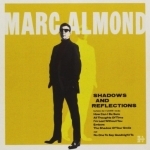
Shadows and Reflections by Marc Almond
Album Watch
‘Shadows And Reflections’ features sumptuous arrangements of iconic torch songs and 60’s...
pop

Brain Play
Games and Music
App
Brain Play is a free app that introduces Morphonix’s NeuroPlay Adventures series. You meet...
Emma @ The Movies (1786 KP) rated A Quiet Place: Part II (2021) in Movies
Sep 25, 2021
One of the many long time coming films from before the pandemonium finally made its way to our screens. The sequel to the film that made us uncomfortable to eat snacks while we were at the cinema... A Quiet Place Part II came out to an excited crowd going back to the movies.
The Abbots have survived the attack on their family and found a way to get the upper hand in the fight against the monsters. They need to move on, beyond the boundaries they're set up for themselves. But what is out there blocking their way? Friend or foe? There's no way of knowing.
I was sceptical about a second film, there was a perfectly good intriguing ending to the first, and sequels aren't always the follow-ups we hope for. Would there be enough to stretch out into a decent story?
Emily Blunt was Emily Blunt. The expected powerful performance, but it was nice to see her taking a slight back seat to allow other characters to take the lead... whether I enjoyed that or not.
The biggest change on that front was giving Regan a bigger piece of the action, and the chance to show the leadership that is now missing since the death of her father. And we get an interesting pairing with her and Cillian Murphy, there's a bond made that leads them to learn about each other and it was nice, while a little sad, to see her with a new father figure in her life for a while.
Murphy's character of Emmett seems far more at home with his life as a "lone survivor" than he did as a family man. He's bunkered down outside their radius and got himself a nice little set up... but... there's one very large point that is not addressed during the films, and it's quick frankly too odd (and slightly sinister) for them to have avoided. Apart from that, Emmett does unfold nicely through the film, and he really adjusts well to being reconnected with the Abbotts.
As much as I like Noah Jupe, I found Marcus to be entirely too frustrating in this film. I don't like to wish ill upon people, but, he deserved to be eaten by a monster, or at least lightly maimed. Reckless and idiotic, he quite frankly didn't deserve any kind of redemption.
Even more so than the first, this film gave me heavy Lost vibes. If you broke some of the scenes down into their vaguest detail and asked people to guess what you were talking about, I'd certainly forgive people for guessing wrong. But yet again it's a suspenseful offering, and I found it hilarious when I fell for the jump scares. Coming out to an almost instant announcement of a third film left me wondering though. What could it do from here? It really felt like it had come to a natural ending.
Originally posted on: https://emmaatthemovies.blogspot.com/2021/09/a-quiet-place-part-ii-movie-review.html
The Abbots have survived the attack on their family and found a way to get the upper hand in the fight against the monsters. They need to move on, beyond the boundaries they're set up for themselves. But what is out there blocking their way? Friend or foe? There's no way of knowing.
I was sceptical about a second film, there was a perfectly good intriguing ending to the first, and sequels aren't always the follow-ups we hope for. Would there be enough to stretch out into a decent story?
Emily Blunt was Emily Blunt. The expected powerful performance, but it was nice to see her taking a slight back seat to allow other characters to take the lead... whether I enjoyed that or not.
The biggest change on that front was giving Regan a bigger piece of the action, and the chance to show the leadership that is now missing since the death of her father. And we get an interesting pairing with her and Cillian Murphy, there's a bond made that leads them to learn about each other and it was nice, while a little sad, to see her with a new father figure in her life for a while.
Murphy's character of Emmett seems far more at home with his life as a "lone survivor" than he did as a family man. He's bunkered down outside their radius and got himself a nice little set up... but... there's one very large point that is not addressed during the films, and it's quick frankly too odd (and slightly sinister) for them to have avoided. Apart from that, Emmett does unfold nicely through the film, and he really adjusts well to being reconnected with the Abbotts.
As much as I like Noah Jupe, I found Marcus to be entirely too frustrating in this film. I don't like to wish ill upon people, but, he deserved to be eaten by a monster, or at least lightly maimed. Reckless and idiotic, he quite frankly didn't deserve any kind of redemption.
Even more so than the first, this film gave me heavy Lost vibes. If you broke some of the scenes down into their vaguest detail and asked people to guess what you were talking about, I'd certainly forgive people for guessing wrong. But yet again it's a suspenseful offering, and I found it hilarious when I fell for the jump scares. Coming out to an almost instant announcement of a third film left me wondering though. What could it do from here? It really felt like it had come to a natural ending.
Originally posted on: https://emmaatthemovies.blogspot.com/2021/09/a-quiet-place-part-ii-movie-review.html
graveyardgremlin (7194 KP) rated Nightmares: A New Decade of Modern Horror in Books
Feb 15, 2019
Shallaballah by [a:Mark Samuels|679023|Mark Samuels|https://images.gr-assets.com/authors/1485638875p2/679023.jpg]
Weird and I didn't completely understand it. I'm not big on surreal-like stories.
1.5 stars
Sob in the Silence by [a:Gene Wolfe|23069|Gene Wolfe|https://images.gr-assets.com/authors/1207670073p2/23069.jpg]
I liked it okay, but wasn't wowed. I feel like there was a missed opportunity and that the ending was too abrupt.
3 stars
Our Tun Too Will One Day Come by [a:Brian Hodge|167606|Brian Hodge|https://images.gr-assets.com/authors/1326937946p2/167606.jpg]
Folklore and horror equal an interesting tale. I'd read more from Brian Hodge.
4 stars
Dead Sea Fruit by [a:Kaaron Warren|1207458|Kaaron Warren|https://images.gr-assets.com/authors/1303270263p2/1207458.jpg]
So far the best in the book. Perfectly paced and pretty darned creepy.
4.5 stars
Closet Dreams by [a:Lisa Tuttle|38313|Lisa Tuttle|https://images.gr-assets.com/authors/1296860221p2/38313.jpg]
Haunting. That's the first word that popped into my head when I finished this story. Also, disturbing, sad, and devastating. Trigger warning: <spoiler>pedophilia and abduction, although not described in any kind of detail</spoiler>
5 stars
Spectral Evidence by [a:Gemma Files|765702|Gemma Files|https://images.gr-assets.com/authors/1266869494p2/765702.jpg]
I had a hard time with this, especially at the beginning since it's written as a case study with footnotes. Had this been written as a regular short story, I do believe the horror is there for a good tale, but as it stands it didn't feel at all scary or nightmarish.
2.5 stars
Hushabye by [a:Simon Bestwick|2830642|Simon Bestwick|https://s.gr-assets.com/assets/nophoto/user/u_50x66-632230dc9882b4352d753eedf9396530.png]
This was...okay. It sorta fit the book, but it also sorta didn't. The story almost felt noir, but not quite, plus everything was rather vague. Not bad, but fine.
3 stars
Very Low-Flying Aircraft by [a:Nicholas Royle|20435|Nicholas Royle|https://s.gr-assets.com/assets/nophoto/user/m_50x66-82093808bca726cb3249a493fbd3bd0f.png]
The only horror in this is the fact that it's included in a horror anthology. I'm not even sure what the point was.
1.5 stars
The Goosle by [a:Margo Lanagan|277536|Margo Lanagan|https://images.gr-assets.com/authors/1361153347p2/277536.jpg]
Meh. An even more twisted sequel of sorts to Hansel and Gretel sans Gretel. While it's gory, it didn't bother me but I didn't love it.
3 stars
The Clay Party by [a:Steve Duffy|376166|Steve Duffy|https://images.gr-assets.com/authors/1329037438p2/376166.jpg]
A take on the Donner Party told through diary entries and a letter at the end.
4 stars
Strappado by [a:Laird Barron|466494|Laird Barron|https://images.gr-assets.com/authors/1446325324p2/466494.jpg]
This didn't do anything for me; it was just too vague.
2 stars
Lonegan's Luck by [a:Stephen Graham Jones|96300|Stephen Graham Jones|https://images.gr-assets.com/authors/1458951688p2/96300.jpg]
Interesting, the writing and pace was good. The MC is a conman of the old(?) West. I didn't understand why he did what he did exactly, like were there circumstances of something that happened to the country as a whole, but it's not such a big thing. I only hoped he'd get a taste of his own medicine, so to speak.
3 stars
Mr. Pigsny by [a:Reggie Oliver|518983|Reggie Oliver|https://images.gr-assets.com/authors/1477924368p2/518983.jpg]
An odd, creepy little tale.
4 stars
At Night, When the Demons Come by [a:Ray Cluley|4446653|Ray Cluley|https://s.gr-assets.com/assets/nophoto/user/u_50x66-632230dc9882b4352d753eedf9396530.png]
Perfectly told, perfectly paced, with a horrible-ish ending. Definitely memorable.
4.5 stars
Was She Wicked? Was She Good by [a:Mary Rickert|7344680|Mary Rickert|https://s.gr-assets.com/assets/nophoto/user/u_50x66-632230dc9882b4352d753eedf9396530.png] (as M. Rickert)
Meh. Not bad, but not great either. I don't really have much to say about it.
3 stars
The Shallows by [a:John Langan|58413|John Langan|https://s.gr-assets.com/assets/nophoto/user/u_50x66-632230dc9882b4352d753eedf9396530.png]
I honestly don't even remember this one so it must not have been all that bad or good.
2 stars
Little Pig by [a:Anna Taborska|4343515|Anna Taborska|https://s.gr-assets.com/assets/nophoto/user/u_50x66-632230dc9882b4352d753eedf9396530.png]
Horrific only in the way of what you might do to for the survival of those you love. A quirky start with an powerful ending.
4 stars
Omphalos by [a:Livia Llewellyn|2966042|Livia Llewellyn|https://images.gr-assets.com/authors/1298571003p2/2966042.jpg]
Well-written but definitely not one for everybody. It's sick, a little too descriptive with the incest. I don't need an actual scene with explicitness. While I felt sorry for the MC and her brother, the story made me sad for actual victims. Possibly the point, but it's an upsetting story that some should probably skip. Also, what happened in the end? I get some of it, but it was so confusing and vague that I didn't fully comprehend the conclusion. It doesn't matter much, but I'm getting tired of vague endings or other scenes in these stories.
3.5 stars
How We Escaped Our Certain Fate by [a:Dan Chaon|16560|Dan Chaon|https://images.gr-assets.com/authors/1241719844p2/16560.jpg]
Interesting and thoughtful zombie tale. Slightly melancholy.
3.5 stars
That Tiny Flutter of The Heart I Used to Call Love by [a:Robert Shearman|128037|Robert Shearman|https://images.gr-assets.com/authors/1363523036p2/128037.jpg]
Strange. I'm not sure exactly what I thought of this tale, and I'm not sure I totally get what happened at the end, but that seems to be my lot with some of these stories.
3 stars
Interstate Love Song (Murder Ballad No. 8) by [a:Caitlín R. Kiernan|4798562|Caitlín R. Kiernan|https://images.gr-assets.com/authors/1491390729p2/4798562.jpg]
I liked this story. It was....interesting to say the least. Not my favorite but solid.
3.75 stars
Shay Corsham Worsted by [a:Garth Nix|8347|Garth Nix|https://images.gr-assets.com/authors/1207583754p2/8347.jpg]
3.5 stars
The Atlas of Hell by [a:Nathan Ballingrud|2957979|Nathan Ballingrud|https://images.gr-assets.com/authors/1354770124p2/2957979.jpg]
4.5 stars
Ambitious Boys Like You by [a:Richard Kadrey|37557|Richard Kadrey|https://images.gr-assets.com/authors/1252945001p2/37557.jpg]
4 - 4.5 stars
Okay, I kinda ran out of reviewing steam near the end, but the last two stories were excellent.
Weird and I didn't completely understand it. I'm not big on surreal-like stories.
1.5 stars
Sob in the Silence by [a:Gene Wolfe|23069|Gene Wolfe|https://images.gr-assets.com/authors/1207670073p2/23069.jpg]
I liked it okay, but wasn't wowed. I feel like there was a missed opportunity and that the ending was too abrupt.
3 stars
Our Tun Too Will One Day Come by [a:Brian Hodge|167606|Brian Hodge|https://images.gr-assets.com/authors/1326937946p2/167606.jpg]
Folklore and horror equal an interesting tale. I'd read more from Brian Hodge.
4 stars
Dead Sea Fruit by [a:Kaaron Warren|1207458|Kaaron Warren|https://images.gr-assets.com/authors/1303270263p2/1207458.jpg]
So far the best in the book. Perfectly paced and pretty darned creepy.
4.5 stars
Closet Dreams by [a:Lisa Tuttle|38313|Lisa Tuttle|https://images.gr-assets.com/authors/1296860221p2/38313.jpg]
Haunting. That's the first word that popped into my head when I finished this story. Also, disturbing, sad, and devastating. Trigger warning: <spoiler>pedophilia and abduction, although not described in any kind of detail</spoiler>
5 stars
Spectral Evidence by [a:Gemma Files|765702|Gemma Files|https://images.gr-assets.com/authors/1266869494p2/765702.jpg]
I had a hard time with this, especially at the beginning since it's written as a case study with footnotes. Had this been written as a regular short story, I do believe the horror is there for a good tale, but as it stands it didn't feel at all scary or nightmarish.
2.5 stars
Hushabye by [a:Simon Bestwick|2830642|Simon Bestwick|https://s.gr-assets.com/assets/nophoto/user/u_50x66-632230dc9882b4352d753eedf9396530.png]
This was...okay. It sorta fit the book, but it also sorta didn't. The story almost felt noir, but not quite, plus everything was rather vague. Not bad, but fine.
3 stars
Very Low-Flying Aircraft by [a:Nicholas Royle|20435|Nicholas Royle|https://s.gr-assets.com/assets/nophoto/user/m_50x66-82093808bca726cb3249a493fbd3bd0f.png]
The only horror in this is the fact that it's included in a horror anthology. I'm not even sure what the point was.
1.5 stars
The Goosle by [a:Margo Lanagan|277536|Margo Lanagan|https://images.gr-assets.com/authors/1361153347p2/277536.jpg]
Meh. An even more twisted sequel of sorts to Hansel and Gretel sans Gretel. While it's gory, it didn't bother me but I didn't love it.
3 stars
The Clay Party by [a:Steve Duffy|376166|Steve Duffy|https://images.gr-assets.com/authors/1329037438p2/376166.jpg]
A take on the Donner Party told through diary entries and a letter at the end.
4 stars
Strappado by [a:Laird Barron|466494|Laird Barron|https://images.gr-assets.com/authors/1446325324p2/466494.jpg]
This didn't do anything for me; it was just too vague.
2 stars
Lonegan's Luck by [a:Stephen Graham Jones|96300|Stephen Graham Jones|https://images.gr-assets.com/authors/1458951688p2/96300.jpg]
Interesting, the writing and pace was good. The MC is a conman of the old(?) West. I didn't understand why he did what he did exactly, like were there circumstances of something that happened to the country as a whole, but it's not such a big thing. I only hoped he'd get a taste of his own medicine, so to speak.
3 stars
Mr. Pigsny by [a:Reggie Oliver|518983|Reggie Oliver|https://images.gr-assets.com/authors/1477924368p2/518983.jpg]
An odd, creepy little tale.
4 stars
At Night, When the Demons Come by [a:Ray Cluley|4446653|Ray Cluley|https://s.gr-assets.com/assets/nophoto/user/u_50x66-632230dc9882b4352d753eedf9396530.png]
Perfectly told, perfectly paced, with a horrible-ish ending. Definitely memorable.
4.5 stars
Was She Wicked? Was She Good by [a:Mary Rickert|7344680|Mary Rickert|https://s.gr-assets.com/assets/nophoto/user/u_50x66-632230dc9882b4352d753eedf9396530.png] (as M. Rickert)
Meh. Not bad, but not great either. I don't really have much to say about it.
3 stars
The Shallows by [a:John Langan|58413|John Langan|https://s.gr-assets.com/assets/nophoto/user/u_50x66-632230dc9882b4352d753eedf9396530.png]
I honestly don't even remember this one so it must not have been all that bad or good.
2 stars
Little Pig by [a:Anna Taborska|4343515|Anna Taborska|https://s.gr-assets.com/assets/nophoto/user/u_50x66-632230dc9882b4352d753eedf9396530.png]
Horrific only in the way of what you might do to for the survival of those you love. A quirky start with an powerful ending.
4 stars
Omphalos by [a:Livia Llewellyn|2966042|Livia Llewellyn|https://images.gr-assets.com/authors/1298571003p2/2966042.jpg]
Well-written but definitely not one for everybody. It's sick, a little too descriptive with the incest. I don't need an actual scene with explicitness. While I felt sorry for the MC and her brother, the story made me sad for actual victims. Possibly the point, but it's an upsetting story that some should probably skip. Also, what happened in the end? I get some of it, but it was so confusing and vague that I didn't fully comprehend the conclusion. It doesn't matter much, but I'm getting tired of vague endings or other scenes in these stories.
3.5 stars
How We Escaped Our Certain Fate by [a:Dan Chaon|16560|Dan Chaon|https://images.gr-assets.com/authors/1241719844p2/16560.jpg]
Interesting and thoughtful zombie tale. Slightly melancholy.
3.5 stars
That Tiny Flutter of The Heart I Used to Call Love by [a:Robert Shearman|128037|Robert Shearman|https://images.gr-assets.com/authors/1363523036p2/128037.jpg]
Strange. I'm not sure exactly what I thought of this tale, and I'm not sure I totally get what happened at the end, but that seems to be my lot with some of these stories.
3 stars
Interstate Love Song (Murder Ballad No. 8) by [a:Caitlín R. Kiernan|4798562|Caitlín R. Kiernan|https://images.gr-assets.com/authors/1491390729p2/4798562.jpg]
I liked this story. It was....interesting to say the least. Not my favorite but solid.
3.75 stars
Shay Corsham Worsted by [a:Garth Nix|8347|Garth Nix|https://images.gr-assets.com/authors/1207583754p2/8347.jpg]
3.5 stars
The Atlas of Hell by [a:Nathan Ballingrud|2957979|Nathan Ballingrud|https://images.gr-assets.com/authors/1354770124p2/2957979.jpg]
4.5 stars
Ambitious Boys Like You by [a:Richard Kadrey|37557|Richard Kadrey|https://images.gr-assets.com/authors/1252945001p2/37557.jpg]
4 - 4.5 stars
Okay, I kinda ran out of reviewing steam near the end, but the last two stories were excellent.
Kristy H (1252 KP) rated Two Kinds of Truth (Harry Bosch #20) in Books
Jan 10, 2018
Another wonderful mystery novel featuring Connelly's excellently developed lead detective
Michael Connelly's iconic detective, Harry Bosch, is back again. Harry's basically a volunteer for the San Fernando police department, working cold cases for the tiny force and mentoring their three young detectives. When they are called out for a murder of a father and son at a local pharmacy, Harry assists the inexperienced team in trying to track down the killers. The case leads Harry and his detectives into the dark world of opiates--both the big money of pill mills and the sad, cold side of addiction. Meanwhile, Harry hears from his former employer, the LAPD, when one of his thirty-year-old cases is reopened based on new evidence. Even worse, the killer is claiming Harry framed him. The case threatens Harry's most prized possession: his reputation as a cop, and he knows that no one will fight to clear his name like himself. The two unrelated cases pull at different sides of Bosch as he works to discover all different facets of the truth.
I love Harry Bosch so much, and there will be a hole in my heart when Connelly no longer writes about him. I actually moved this book up in my rotation (something I rarely ever do!) so I could read it on a weekend trip to Chicago, and my only regret is that it meant I finished it in about 48 hours, and now it's over. Per usual, Connelly gives us yet another wonderful mystery novel featuring his excellently developed lead detective. This one covers the timely topic of the opiate crisis, which looms fairly large in America today. It's well-researched, as always.
Reading a Bosch novel is like picking up with an old friend, and this one is no different. Our Bosch is aging, which this book acknowledges well. We see Bosch still grappling with having left the LAPD--who can he trust, what can he do with his life now. We even get some appearances from previous characters in earlier novels. Perhaps the best thing is a fairly large role for Bosch's half brother Mickey Haller, the famed "Lincoln Lawyer." These two are still figuring out their own relationship, but it's a treat for us readers to get a glimpse of Mickey; we even get to see some of his enjoyable courtroom antics. There's even an appearance from Mickey's investigator, Cisco! (See, it's like being old friends!)
And, of course, we can't forget the actual story, which, in usual Connelly style is excellent and tracks along flawlessly along Bosch's own journey. The opiate tale is both fascinating and depressing, while Bosch's unraveling of the backstory behind the reopened cold case will certainly keep you reading. There's never really any crazy twists or turns, but the novel moves along steadily and easily. There's both growth and angst with Bosch--I have to admit, I worry about the end of his arc, but I will still enjoy every moment I get with him until them.
Another enjoyable one for the Bosch canon--certainly recommend!
I love Harry Bosch so much, and there will be a hole in my heart when Connelly no longer writes about him. I actually moved this book up in my rotation (something I rarely ever do!) so I could read it on a weekend trip to Chicago, and my only regret is that it meant I finished it in about 48 hours, and now it's over. Per usual, Connelly gives us yet another wonderful mystery novel featuring his excellently developed lead detective. This one covers the timely topic of the opiate crisis, which looms fairly large in America today. It's well-researched, as always.
Reading a Bosch novel is like picking up with an old friend, and this one is no different. Our Bosch is aging, which this book acknowledges well. We see Bosch still grappling with having left the LAPD--who can he trust, what can he do with his life now. We even get some appearances from previous characters in earlier novels. Perhaps the best thing is a fairly large role for Bosch's half brother Mickey Haller, the famed "Lincoln Lawyer." These two are still figuring out their own relationship, but it's a treat for us readers to get a glimpse of Mickey; we even get to see some of his enjoyable courtroom antics. There's even an appearance from Mickey's investigator, Cisco! (See, it's like being old friends!)
And, of course, we can't forget the actual story, which, in usual Connelly style is excellent and tracks along flawlessly along Bosch's own journey. The opiate tale is both fascinating and depressing, while Bosch's unraveling of the backstory behind the reopened cold case will certainly keep you reading. There's never really any crazy twists or turns, but the novel moves along steadily and easily. There's both growth and angst with Bosch--I have to admit, I worry about the end of his arc, but I will still enjoy every moment I get with him until them.
Another enjoyable one for the Bosch canon--certainly recommend!
Jamie (131 KP) rated The Edible Woman in Books
May 24, 2017
An honest exploration of the roles of women, marriage, and entering adulthood
Marian is an average college-educated woman who lives with a roommate in a decent apartment, works for a survey company, is moderately good looking, and has a handsome fiancé who is on his way to being a big shot lawyer. It sounds like life altogether is going pretty well for Marian. Yet for some reason she feels empty, why?
The Edible Woman explores the themes of losing a sense of self with maturity. At work she is pushed around, her roommate Ainsley is inconsiderate, the landlady is judgmental, and her boyfriend Peter is self centered and makes snide comments at Marian’s expense, acting like he can barely tolerate her. With each encounter Marian puts aside her pride for the sake of avoiding conflict. Marian expresses her problems through eating, or the lack thereof, hinting at a potential eating disorder. Just as she feels inhibited in life, she suddenly feels inhibited with the kinds of food that she can eat.
As the story continues she begins to dread marriage and question the direction her life is going—becoming just as listless as her friend and former classmate Clara, who after marriage and three pregnancies just seems beaten down. Marian’s fiancé Peter is the stereotypical perfect bachelor: a man’s man that looks down on women and views marriage as a ball and chain. Peter pushes Marian around in order to mold her into a subservient woman. There is no longer any room for her thoughts, her feelings, or her desires from under his shadow.
But what about work? What are women’s roles in society and the work force? Throughout the story there are several women including Marian with college educations, yet none of them really have a stable career. Women are expected to be wives and mothers, there’s simply no time for an education or a job. In this case, their educations are ultimately viewed as their downfall due to the crushing reality of how little opportunity they would have. This was the very sad truth at the time the book was written and thankfully is not exactly the case now in most parts of the world.
Atwood tackles a large number of social issues throughout the book that I think would be important for any young woman. Adulthood, relationships, marriage, the choice between work and education versus starting a family, and lastly feminism—both good and bad. (Hint: Ainsely is a perfect example of a bad feminist.)
There are certain elements of the book that are becoming quite dated. Namely the typewriters, the social expectation that all women can be are housewives, and the limited ways that women can dress; These things might make it difficult for young women to look past and relate to the main character. Despite this the book is still incredibly relevant in the message that it brings about maintaining one’s individuality. I absolutely love this book and found a lot of my former self in it’s pages.
The Edible Woman explores the themes of losing a sense of self with maturity. At work she is pushed around, her roommate Ainsley is inconsiderate, the landlady is judgmental, and her boyfriend Peter is self centered and makes snide comments at Marian’s expense, acting like he can barely tolerate her. With each encounter Marian puts aside her pride for the sake of avoiding conflict. Marian expresses her problems through eating, or the lack thereof, hinting at a potential eating disorder. Just as she feels inhibited in life, she suddenly feels inhibited with the kinds of food that she can eat.
As the story continues she begins to dread marriage and question the direction her life is going—becoming just as listless as her friend and former classmate Clara, who after marriage and three pregnancies just seems beaten down. Marian’s fiancé Peter is the stereotypical perfect bachelor: a man’s man that looks down on women and views marriage as a ball and chain. Peter pushes Marian around in order to mold her into a subservient woman. There is no longer any room for her thoughts, her feelings, or her desires from under his shadow.
But what about work? What are women’s roles in society and the work force? Throughout the story there are several women including Marian with college educations, yet none of them really have a stable career. Women are expected to be wives and mothers, there’s simply no time for an education or a job. In this case, their educations are ultimately viewed as their downfall due to the crushing reality of how little opportunity they would have. This was the very sad truth at the time the book was written and thankfully is not exactly the case now in most parts of the world.
Atwood tackles a large number of social issues throughout the book that I think would be important for any young woman. Adulthood, relationships, marriage, the choice between work and education versus starting a family, and lastly feminism—both good and bad. (Hint: Ainsely is a perfect example of a bad feminist.)
There are certain elements of the book that are becoming quite dated. Namely the typewriters, the social expectation that all women can be are housewives, and the limited ways that women can dress; These things might make it difficult for young women to look past and relate to the main character. Despite this the book is still incredibly relevant in the message that it brings about maintaining one’s individuality. I absolutely love this book and found a lot of my former self in it’s pages.
Whatchareadin (174 KP) rated I'll Take You There in Books
May 10, 2018
Felix Funicello is a film professor who lives in Connecticut. He is divorced and has one daughter, Eliza, who is currently working for New York Magazine. Felix also has two older sister, Simone and Frances who are an integral part of his life. Felix hold a movie club on Monday nights in the old Vaudeville theater in town. One night as he is setting up, he is visited by the ghost of Lois Weber, a renowned film director in her time. Lois shows Felix glimpses of his life along with the important women in it. Through these snapshots, Felix gains a greater understanding of the women in his life and women in general.
This book was reminiscent to A Christmas Carol, but he is visited by the same ghost, who brings three different visitors with her. Felix is first returned to his six year-old self. Where he and his sisters are helping their neighbor gather votes to become the next Rheingold Girl. Rheingold is a beer. This happens after his daughter tells him she has to write a piece about these girls.
The next transportation is a few years later when Felix is twelve. His mother and sister are talking in the kitchen about her boss being inappropriate with her at work. This part I heard just a few days after hearing day after day about a new man in a high position has been removed because of inappropriate behavior in the work place. Mind you, this is taking place in the early '60s and times were different, but some things never change. As Eliza, is telling her mother about what her boss has said, it's the mother's response that truly strikes me.
<i>"Men are men. Shapely girls like you just have to put up with stuff like that in the working world or else quit. Those are your choices."</i>
Thank God, those are no longer our choices, and that shouldn't have been the mentality then, maybe we wouldn't have all these issues today.
Also during this trip, Felix is given some news about his family that will change the dynamic forever.
The final time Lois comes to visit, the guest she brings, gives Felix a testimony that he has wondered about in the back of his mind for most of his life. That helps to fill a missing piece. The story is sad and is a part of the two previous visits from Lois.
All of these visits help Felix to be a better man, brother and father to the women in his life.
I think this is a very important book for all women to read, especially with the things going on in our world today. Told from the male point of view, I think it helps to see that some men can be empathetic to the plights of women. And this books covers a lot of those plights, from feminism, to abortion, adoption and acceptance. Years ago, I read She's Come Undone by Wally Lamb and I remember feeling the same way after reading it. Read them both.
This book was reminiscent to A Christmas Carol, but he is visited by the same ghost, who brings three different visitors with her. Felix is first returned to his six year-old self. Where he and his sisters are helping their neighbor gather votes to become the next Rheingold Girl. Rheingold is a beer. This happens after his daughter tells him she has to write a piece about these girls.
The next transportation is a few years later when Felix is twelve. His mother and sister are talking in the kitchen about her boss being inappropriate with her at work. This part I heard just a few days after hearing day after day about a new man in a high position has been removed because of inappropriate behavior in the work place. Mind you, this is taking place in the early '60s and times were different, but some things never change. As Eliza, is telling her mother about what her boss has said, it's the mother's response that truly strikes me.
<i>"Men are men. Shapely girls like you just have to put up with stuff like that in the working world or else quit. Those are your choices."</i>
Thank God, those are no longer our choices, and that shouldn't have been the mentality then, maybe we wouldn't have all these issues today.
Also during this trip, Felix is given some news about his family that will change the dynamic forever.
The final time Lois comes to visit, the guest she brings, gives Felix a testimony that he has wondered about in the back of his mind for most of his life. That helps to fill a missing piece. The story is sad and is a part of the two previous visits from Lois.
All of these visits help Felix to be a better man, brother and father to the women in his life.
I think this is a very important book for all women to read, especially with the things going on in our world today. Told from the male point of view, I think it helps to see that some men can be empathetic to the plights of women. And this books covers a lot of those plights, from feminism, to abortion, adoption and acceptance. Years ago, I read She's Come Undone by Wally Lamb and I remember feeling the same way after reading it. Read them both.
